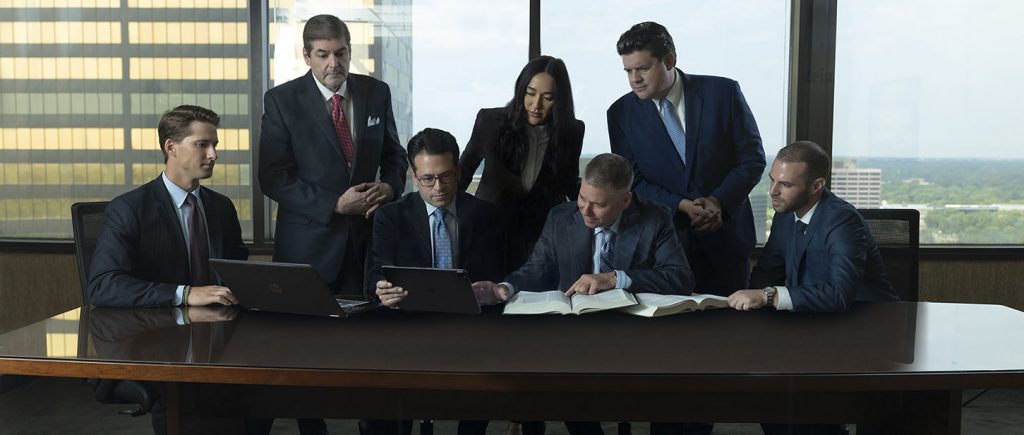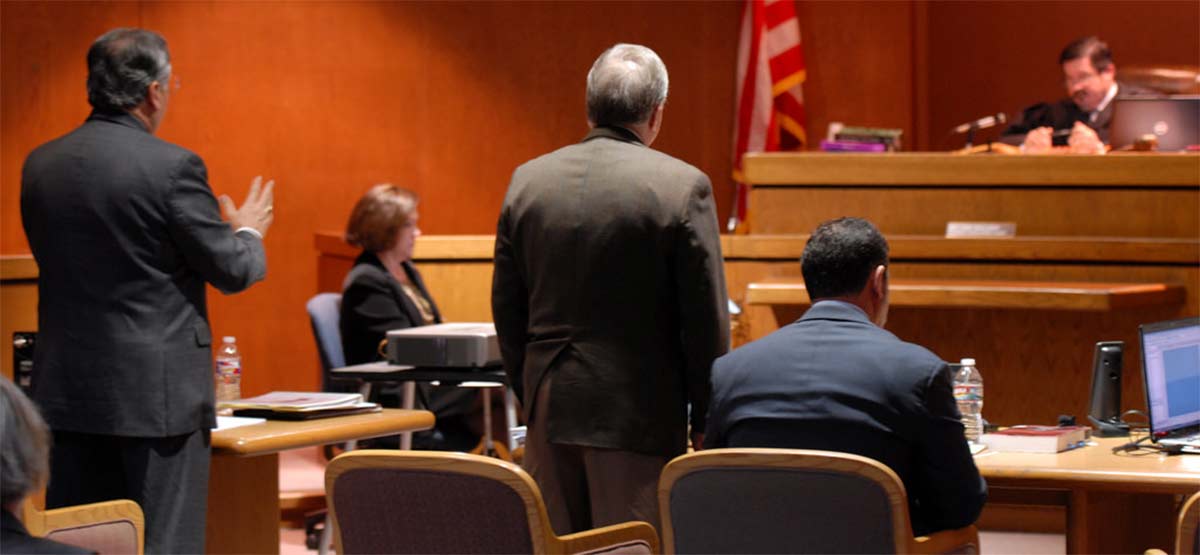Plea Options in Felony and Misdemeanor Cases
In Michigan, once a person is charged with a crime, they must enter a plea. The type of plea entered can have lasting consequences, and there is no room for error.

What happens at arraignment on a criminal charge?
A person charged with a crime in a Michigan court must go through an arraignment process. At the arraignment, the defendant will enter a plea. In virtually every case, the defendant will “stand mute,” meaning not say anything, and the judge will enter a “not guilty” plea on their behalf. A “not guilty plea” is entered regardless of the defendant’s guilt or innocence. A plea of guilty is extremely rare at arraignment and would only be in a defendant’s best interest under rare circumstances. At a later time in the case, it might be in the defendant’s best interest to change their plea from “not guilty” to “guilty” or “no contest.” An experienced lawyer can help clients understand the plea options in criminal cases.
Types of Plea Options in Criminal Cases
Anyone who’s watched a crime show or read the news is probably familiar with the most common criminal pleas: guilty and not guilty. In reality, there are several plea options in criminal cases. There are four primary types of criminal pleas that a defendant can enter in court:
Guilty
If a defendant pleads guilty to a crime, he is admitting that he committed the crime, giving up the right to present any defense, and subjecting himself to a sentence of jail or prison, probation, fines and costs, and more. A defendant’s guilty plea must be voluntary, intelligent, and knowing. If a plea is not voluntary or the defendant did not understand what they were doing, the plea is defective and subject to challenge by motion.
Not guilty
If a defendant enters a not guilty plea, he is disputing the charges or assuming that the prosecutor will be unable to prove its case beyond a reasonable doubt. The defendant requires the prosecution to prove its case at trial by entering a not guilty plea. Most defendants initially either plea not guilty or have a not guilty plea entered on their behalf. A not guilty plea can be changed later if it is in the defendant’s best interest to change the plea or enter into a plea bargain for reduced charges or a lenient sentence. If a case goes to trial, the prosecution will have to prove the defendant’s guilt “beyond a reasonable doubt” Also, the defendant will have an opportunity to dispute that evidence at a trial, produce defense evidence, and have a judge or jury decide if the government’s evidence is sufficient. A defendant can always change their not guilty plea into another type of plea. If an innocent person faces charges, a not guilty plea is the best of the plea options in criminal cases.
Insanity
Insanity means that the defendant doesn’t understand the consequences of their actions because of mental impairment, or they could not conform their actions to the law because of mental illness or defect.
No Contest – sometimes known as “nolo contendere.”
The no-contest plea option is similar to a guilty plea in a criminal case because you are not challenging the charges against you. But at the same time, you are not admitting or denying guilt. The advantage of a no-contest plea is that a defendant does not have to say how the crime was committed, and his plea cannot later be used against you in a civil trial. Generally, the parties agree to the facts based upon the police report or other available evidence. Even though a defendant does not admit to guilt with a No Contest Plea, it can be the best plea option in a criminal case.

Cobb’s Plea and Killebrew Agreement
If a defendant entered a guilty or no contest plea, they might be able to get a Cobb’s Agreement from the judge, a Killebrew Agreement from the prosecutor, or both. A Cobb’s Agreement is a sentence agreement whereby the judge agrees not to exceed a specific sentence. If the judge decides to exceed the Cobb’s plea at sentencing, the defendant has the absolute right to withdraw their plea and either re-negotiate a new Cobbs or take the case to trial. A Killebrew is similar, but the agreement is with the prosecutor. If the judge cannot follow the agreement between the prosecution and defense, then the defendant can withdraw their plea.
Alford Plea Option in a Criminal Case
A guilty plea in which the defendant maintains their innocence but agrees that if the case went to trial, the prosecution’s evidence would almost certainly lead to a guilty verdict. Michigan courts do not accept Alford Pleas. This type of plea is only available in federal court. There are some cases where a conviction is virtually certain despite the defendant’s categorical claim of innocence. In such cases, a defendant might prefer to negotiate for a lenient sentence, rather than risk a conviction and harsh punishment.

What is a plea bargain or plea agreement?
A defense attorney and the prosecution work out a plea to a reduced charge in a plea or plea agreement. A plea to a reduced charge, or a plea in exchange for the dismissal of some charges, is known as a plea bargain. In a typical plea deal, the defendant agrees to plead guilty to the crime in exchange for favorable treatment from the prosecution or the judge (often called aCCobb’s Agreement). Both sides usually get a benefit. For instance, the prosecutor is guaranteed a conviction in some form, and the defendant may get a lighter sentence or lower charge than he might receive if he was convicted in a trial.
The criminal defense attorneys with LEWIS & DICKSTEIN, P.L.L.C. have a well-known track record of success and an unparalleled reputation for achieving extraordinary results. If you call us, we will help you understand your plea options in criminal cases and help you decide the best option in your case.
The plea bargain usually occurs after a defendant has pleaded not guilty or stood mute during the criminal arraignment. Different practices and procedures may apply in counties other than Oakland County, Wayne County, Macomb County, Livingston County, and Washtenaw County.
Call us today at (248) 263-6800 for a free consultation or complete a Request for Assistance Form. We will contact you promptly and find a way to help you.

